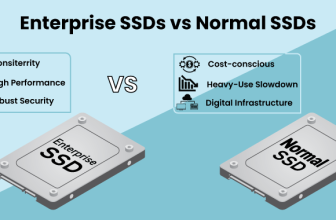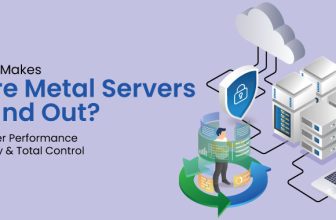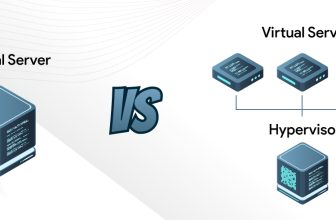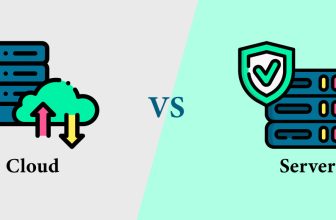Difference Between Cloud, VPS and Dedicated Server
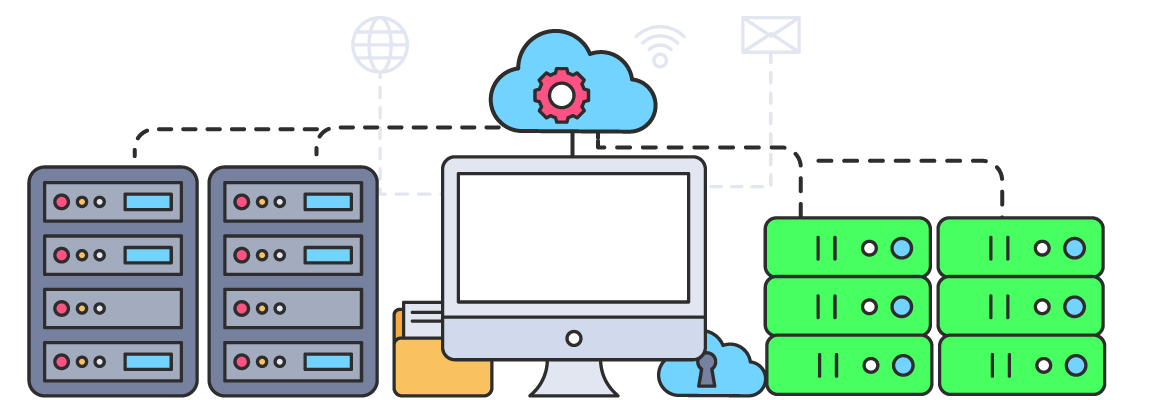
Servers play a crucial role in creating and maintaining the online presence of any business. And it is needless to say that VPS, dedicated, and cloud servers rule the internet world. Before plunging deeper into the subject, let’s see what exactly these cloud, VPS, and dedicated servers are all about.
What Are They?
When the server and its resources are completely dedicated to a single client to support his/her business and workflows round-the-clock, then the server model is called a dedicated server. Likewise, when a virtual machine that mimics the part of a dedicated server environment is offered to users by hosting providers, such a server model is known as a VPS server. On the other hand, when centralized or pooled servers are delivered over the network and accessed by numerous users on demand, typically using a pay-as-you-go model, it is called a cloud server
Each of these server models has their own features, advantages, and a few drawbacks to think about. Here’s all of them stated for your convenience.
Dedicated Server Features
- In a dedicated server, the entire server resources are dedicated to the user workflows alone.
- You don’t have to worry about sharing or running out of resources.
- Customers are free to configure the server based on their work requirements.
- Performance, speed, connectivity, and uptime are offered in abundance to fulfill every user’s requirements.
- The dedicated servers can undoubtedly manage huge amounts of traffic alongside providing maximum security for the stored data.
VPS Server Features
- VPS servers offer baseline resources as guaranteed and, in case of unexpected traffic spikes, additional resources are accommodated by the providers.
- Here, multiple clients share the same server but the server resources allocated to the users are mutually exclusive.
- Users can administer the OS independently and work on any script they desire.
- These VPS servers can be easily customized and are priced accordingly.
- The security and operational efficiency of the VPS servers is very high.
Cloud Server Features
- The cloud server is the latest server solution that offers top-most data reliability and assurance of continuity.
- Cloud servers can provide ultimate protection for your data against system failures, thefts, attacks, and malware.
- Cloud servers offer maximum flexibility under all circumstances.
- Users can add and remove server resources based on their requirements and can pay only for those services they have utilized.
- They can manage any amount of traffic and are extremely reliable.
All these server types can be weighed against their own advantages and disadvantages. Take a look at a few of them.
Dedicated Servers Pros And Cons
Pros
- The server is entirely yours. So are its resources.
- You have complete root access to the server.
- Dedicated servers offer better speed and performance.
- High levels of security for workflows.
- As the server is yours, you can scale and customize your server whenever needed.
- You can work in a reliable server environment.
Cons
- Dedicated servers are very expensive.
- You’ll probably need technical staff who can perfectly maintain and optimize the server accordingly.
- Under device failures, it takes a lot of time to repair, thereby imposing high downtimes.
VPS Server Pros And Cons
Pros
- It is much cheaper than other server models.
- Offers more security and flexibility to the users’ businesses.
- VPS servers are very scalable and can meet your needs beyond doubt.
- Users can have good control over the hosting environment.
- Better efficiency, speed, and performance of websites.
Cons
- VPS servers can’t handle heavy traffic spikes.
- It is hard to configure and maintain the server with low technical knowledge.
- Server resources are not allocated to the users properly by the provider.
- Gaining complete control over the server is impossible.
Cloud Server Pros And Cons
Pros
- Cloud servers are extremely reliable and fault-tolerant.
- Cloud servers justify their pricing as you can only pay for the resources you use.
- They offer increased security, uptime, and better performance.
- Your data remains handy at all times and it is easy to backup and access your files and workloads.
Cons
- If they are not maintained properly by the providers, the risk of theft, attacks, and malware increases.
- Less control over resources. You have to contact the provider for everything you need.
- You should have advanced knowledge to maintain the cloud server.
Conclusion
The cloud, VPS, and dedicated servers come with many features, advantages, disadvantages, and use cases, and the key is to find a good provider. It is for users to consider all of them and choose a solution that suits their work, budget, and traffic requirements.



